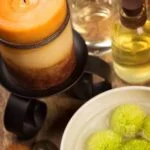Eucalyptus oil is a popular essential oil known for its various therapeutic benefits in aromatherapy. In this article, we will explore how to use eucalyptus oil for aromatherapy, including its benefits, different types, safety precautions, methods of use, DIY blends, and recipes.
Aromatherapy is the practice of using natural plant extracts to promote holistic wellbeing and improve physical and emotional health. Eucalyptus oil, derived from the leaves of the eucalyptus tree, has been widely used in aromatherapy for its medicinal properties and refreshing scent.
Eucalyptus oil offers a wide range of benefits in aromatherapy, such as respiratory support, stress relief and relaxation, as well as anti-inflammatory properties. It can be used in various ways to enhance both physical and mental wellness. In the following sections, we will delve into the details of using eucalyptus oil effectively in aromatherapy practices.
Benefits of Eucalyptus Oil in Aromatherapy
Eucalyptus oil is a popular essential oil that has been used for centuries in traditional medicine and aromatherapy practices. When it comes to aromatherapy, eucalyptus oil offers a wide range of benefits that can positively impact both the body and mind. From respiratory support to stress relief, this powerful oil has become a staple in many holistic wellness routines.
Respiratory Benefits
One of the most well-known benefits of eucalyptus oil in aromatherapy is its ability to support respiratory health. When diffused or inhaled, the oil can help clear the sinuses and provide relief from congestion due to colds or allergies. The anti-inflammatory properties of eucalyptus oil also make it an effective way to ease symptoms associated with respiratory conditions like asthma and bronchitis.
Stress Relief and Relaxation
In addition to its physical benefits, eucalyptus oil can also promote relaxation and mental well-being. Its refreshing and invigorating scent can help ease mental fatigue, reduce feelings of stress, and uplift the mood. Many people turn to eucalyptus oil during meditation or yoga practices to create a calming and soothing environment.
Anti-Inflammatory Properties
Eucalyptus oil contains compounds that have natural anti-inflammatory properties, making it a valuable tool for reducing pain and swelling from conditions like arthritis or muscle strain. When used in massage blends or diluted for topical application, the oil can provide soothing relief for sore muscles and joints.
These are just a few examples of how versatile eucalyptus oil can be when used in aromatherapy practices. Whether you’re looking to support your respiratory system, alleviate stress, or soothe inflammation, incorporating eucalyptus oil into your routine may offer significant benefits for your overall well-being.
Different Types of Eucalyptus Oil for Aromatherapy
Eucalyptus oil is derived from the leaves of the eucalyptus plant through a steam distillation process. This essential oil has a fresh, clean, and slightly woody scent, making it a popular choice for aromatherapy. Aromatherapy is the practice of using natural plant extracts to promote health and well-being, and eucalyptus oil is known for its numerous therapeutic properties.
When it comes to eucalyptus oil for aromatherapy, there are several different types available, each with its own unique characteristics and benefits. Some of the most common types of eucalyptus oil used in aromatherapy include:
- Eucalyptus globulus: Known for its strong medicinal scent, this type of eucalyptus oil is often used for respiratory support and as a decongestant.
- Eucalyptus radiata: With a milder aroma than Eucalpytus globulus, this type of eucalyptus oil is often preferred for its anti-inflammatory and immune-boosting properties.
- Eucalyptus citriodora: Also known as lemon-scented eucalyptus, this variety has a citrus-like fragrance and is commonly used as an insect repellent and for relaxation purposes.
When choosing a type of eucalyptus oil for aromatherapy, it’s important to consider the specific therapeutic benefits you are looking to achieve. Each type of eucalyptus oil has its own unique chemical composition that contributes to its distinct aroma and potential health benefits.
Regardless of the type you choose, it’s essential to ensure that you are using pure, high-quality eucalyptus oil in your aromatherapy practices. Be sure to do your research or consult with a reputable essential oil supplier to find the best option for your needs. Now let’s explore how to use eucalyptus oil for aromatherapy with different types.
Whether you prefer diffusing it into the air, applying it topically during massage or inhalation techniques like steaming or direct breathing from bottle; each method can be used according to preference while considering safety precautions such as dilution guidelines and healthcare professional consultation when necessary.
Safety Precautions and Considerations
Eucalyptus oil is a versatile and popular essential oil that has many uses, including aromatherapy. However, it’s important to use it safely to avoid potential side effects or adverse reactions. Here are some safety precautions and considerations to keep in mind when using eucalyptus oil for aromatherapy.
First and foremost, eucalyptus oil should always be diluted before applying it to the skin or using it for inhalation. Its potency can cause skin irritation or allergic reactions, so it’s essential to mix it with a carrier oil such as coconut oil or sweet almond oil. The general rule of thumb is to use a 2-3% dilution, which equates to about 12-18 drops of eucalyptus oil per ounce of carrier oil.
It’s also crucial to be mindful of any potential allergies or sensitivities you or others may have to eucalyptus oil. If you have a known allergy to eucalyptus, it’s best to avoid using this essential oil altogether. Additionally, if you have asthma or other respiratory conditions, you should consult with a healthcare professional before using eucalyptus oil for aromatherapy.
In terms of inhalation, caution should be exercised when diffusing eucalyptus oil in enclosed spaces, especially around pets or young children. It’s important to ensure proper ventilation and to use the recommended amount of essential oils in the diffuser.
Lastly, store eucalyptus oil out of reach from children and pets, as ingesting the undiluted oil can be toxic. By following these safety precautions and considerations, you can enjoy the benefits of eucalyptus oil in your aromatherapy practices safely and effectively.
| Safety Precautions and Considerations | Eucalpytus Oil Aromatherapy |
|---|---|
| Dilution guidelines | 2-3% dilution is recommended |
| Potential side effects and allergies | Eucalpytus Oil can cause skin irritation or allergic reactions if not properly diluted. |
Methods of Using Eucalyptus Oil in Aromatherapy
Eucalyptus oil is a versatile essential oil that can be used in a variety of ways for aromatherapy. Whether you are looking to improve your respiratory health, reduce stress, or simply create a refreshing and invigorating atmosphere, eucalyptus oil can be a beneficial addition to your aromatherapy practices. In this section, we will explore different methods of using eucalyptus oil for aromatherapy and how to effectively incorporate it into your wellness routine.
One of the most popular methods of using eucalyptus oil in aromatherapy is through diffusion. This involves adding a few drops of eucalyptus oil to a diffuser filled with water, allowing the aroma to disperse throughout the room. Inhalation of the aromatic mist can help clear the sinuses and promote easier breathing, making it an excellent choice for those dealing with respiratory issues or congestion.
Another method for using eucalyptus oil in aromatherapy is through topical application. When diluted properly with a carrier oil such as coconut or almond oil, eucalyptus oil can be massaged onto the skin to provide relief from muscle soreness, tension, or swelling. This method also allows for direct absorption of the oil’s beneficial properties through the skin.
In addition to diffusion and topical application, inhalation is another effective way to use eucalyptus oil in aromatherapy. Adding a few drops of eucalyptus oil to a bowl of hot water and inhaling the steam can help open up the airways and provide respiratory relief. Alternatively, you can add a drop or two of eucalyptus oil to a tissue or cotton ball and breathe in the invigorating scent throughout the day as needed.
Overall, there are several methods for incorporating eucalyptus oil into your aromatherapy routines. Depending on your specific needs and preferences, you may choose one or multiple methods to experience the benefits of this versatile essential oil.
| Methods | Uses |
|---|---|
| Diffusion | Respiratory relief |
| Topical application | Muscle soreness relief |
| Inhalation | Congestion relief |
DIY Eucalyptus Oil Aromatherapy Blends
Eucalyptus oil is a versatile essential oil that can be used in a variety of DIY aromatherapy blends to promote relaxation, stress relief, and respiratory support. By creating your own blends, you can customize the scent and benefits to suit your specific needs. In this section, we will explore some popular DIY eucalyptus oil aromatherapy blends and their benefits.
Eucalyptus and Peppermint for Congestion Relief
One popular blend for respiratory support is a combination of eucalyptus and peppermint essential oils. Both oils have decongestant properties that can help clear nasal passages and ease breathing. To create this blend, simply mix a few drops of eucalyptus oil with an equal amount of peppermint oil and diffuse it in your space. Alternatively, you can add a few drops of each oil to a bowl of steaming water and inhale the vapors for immediate relief.
Eucalyptus and Lavender for Relaxation
For a calming and relaxing aroma, consider blending eucalyptus oil with lavender essential oil. Lavender is well-known for its soothing properties and can help promote relaxation and reduce stress. Combine a few drops of eucalyptus oil with lavender oil in a diffuser or add them to an unscented carrier oil for a calming massage blend.
Eucalyptus and Tea Tree for Immune Support
Tea tree essential oil is renowned for its immune-boosting properties, making it an excellent companion to eucalyptus oil in aromatherapy blends. Both oils have antimicrobial and antiviral properties that can help support the body’s natural defenses. Create an immune-boosting blend by mixing equal parts eucalyptus and tea tree oils in a diffuser or adding them to a DIY chest rub.
These DIY eucalyptus oil aromatherapy blends are just a few examples of how to use eucalyptus oil for aromatherapy. Experiment with different combinations of essential oils to find the perfect blend for your needs, whether it’s promoting relaxation, supporting respiratory health, or boosting immunity.
Eucalyptus Oil Aromatherapy Recipes and Tips
When it comes to using eucalyptus oil for aromatherapy, there are various recipes and tips that can enhance your experience and maximize the benefits of this essential oil. Whether you are looking for respiratory relief, stress reduction, or simply want to create a relaxing atmosphere, incorporating eucalyptus oil into your aromatherapy routine can be incredibly beneficial.
One popular recipe for eucalyptus oil aromatherapy is the creation of eucalyptus shower melts. These are easy to make at home and can provide a refreshing and invigorating experience during your shower. To make eucalyptus shower melts, combine baking soda, cornstarch, water, and eucalyptus oil in a small bowl.
Once the mixture has formed a paste-like consistency, spoon it into silicone molds and allow it to dry overnight. The next time you take a shower, simply place one of these melts on the floor of the shower for an energizing eucalyptus-infused steam.
Another way to incorporate eucalyptus oil into your aromatherapy practice is through massage blends. By blending eucalyptus oil with a carrier oil such as coconut or jojoba oil, you can create a soothing massage blend that can help alleviate muscle tension and promote relaxation. Simply dilute a few drops of eucalyptus oil in your chosen carrier oil and use this blend during self-massage or ask a partner to give you a relaxing massage using the blend.
In addition to these recipes, there are also various inhalation techniques that can be used with eucalyptus oil for aromatherapy. This includes adding a few drops of eucalyptus oil to hot water and inhaling the steam, or using an essential oil diffuser to fill the air with the aroma of eucalyptus. These methods can be especially beneficial for respiratory support and providing relief from congestion.
Overall, by experimenting with different recipes and tips for using eucalyptus oil in aromatherapy, individuals can tailor their experience to their specific needs while reaping its numerous benefits. Whether creating DIY blends or utilizing different methods of application such as diffusion or inhalation – there are endless opportunities for how to use eucalyptus oil for aromatherapy effectively.
Conclusion and Further Resources
In conclusion, eucalyptus oil is a versatile and beneficial essential oil that offers a wide range of therapeutic properties when used in aromatherapy. From its respiratory benefits to its stress-relief and anti-inflammatory properties, eucalyptus oil has been long valued for its healing effects. It is important to note that there are different types of eucalyptus oil available, each with their own unique characteristics and benefits.
When using eucalyptus oil for aromatherapy, it is crucial to follow safety precautions and considerations such as proper dilution guidelines, potential side effects, and consulting with a healthcare professional if needed. There are various methods for using eucalyptus oil in aromatherapy including diffusion, topical application, and inhalation. Additionally, creating DIY eucalyptus oil blends can be a fun and effective way to personalize your aromatherapy experience.
For those interested in incorporating eucalyptus oil into their aromatherapy practices, there are numerous resources and essential oil suppliers available to explore further information and purchase high-quality products. Whether you are seeking respiratory relief, stress reduction or immune support, eucalyptus oil can be a valuable addition to your aromatherapy routine. So why not give it a try today? Happy blending.
Frequently Asked Questions
How Do You Use Eucalyptus Aromatherapy?
Eucalyptus aromatherapy can be used in a few different ways. One common method is to add a few drops of eucalyptus oil to a bowl of hot water and inhale the steam. Another option is to dilute the oil with a carrier oil and apply it to the skin.
Is It Safe to Inhale Eucalyptus Oil?
Inhaling eucalyptus oil can be safe for most people when done in moderation. However, it’s important to dilute the oil properly and avoid direct contact with the eyes or mucous membranes. Some individuals may experience an allergic reaction, so it’s essential to do a patch test before using it extensively.
Can I Put Eucalyptus Oil in My Diffuser?
Yes, you can put eucalyptus oil in your diffuser, but it’s important to follow the manufacturer’s instructions for your specific diffuser model. Typically, only a few drops of eucalyptus oil mixed with water are needed in the diffuser to enjoy its aromatic benefits safely.

Are you looking for a natural way to improve your health and wellbeing?
If so, aromatherapy may be the answer for you.





